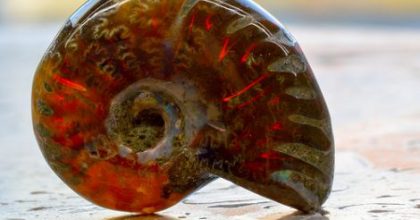
 )
)Evolutionary biology is a challenging topic; the history of the Christian church’s reaction to it, doubly so. Continuing a theme running throughout When Science and Christianity Meet, David Livingston identifies the human element as a major complicating factor. After all, the church does not respond to evolutionary biology; individual Christians do. And some of those individuals are responding more to Darwin the man than his scientific contributions. And even Darwin the man had many reactions to his own work and its relationship to his own religious beliefs and perhaps subsequent lack thereof. And on and on, down the rabbit hole.
Since we’re reading through a book on the history of science and Christianity with a roughly chronological organization, the topic of evolution is approached through the response of Darwin’s Victorian contemporaries. Livingston starts his chapter, “Re-placing Darwinism and Christianity,” by observing that Charles Darwin was the first person to wrestle with the philosophical and theological implications, if any, of his biological conclusions. Everyone’s got a theory of how Darwin’s religious beliefs evolved, but there’s little doubt he originally was open to a Christian faith typical of his peers. Over time, he would have many questions and concerns, some motivated by his scientific work and others by personal tragedies and other experiences. His willingness to document them leaves us with a diversity of perspectives to explain.
And Darwin was just one guy. Everyone else is entitled to complex and changing thoughts on evolutionary biology as well. Thus summarizing the relationship between evolutionary biology and Christianity (temporarily accepting the convenience of allowing two abstract ideas to relate) as anything — a conflict, a dialogue, a collaboration — will fail before it gets started. Livingston illustrates how that was true in Darwin’s day, highlighting scientists and theologians and scientist-theologians with a wide range of ideas on what Darwin did to Christianity.
I’m not much of a historian, but I can observe that the diversity and complexity of thoughts on evolutionary biology persists today. For example, I was surprised to read the following from Tim Keller’s Twitter feed (which, admittedly, is sometimes used by his son):
If we are merely the product of evolution on what basis can we object to powerful people oppressing marginalized ones? Strong>the weak
—Timothy Keller (@timkellernyc) March 19, 2018
Keller has written for BioLogos and is, for better or worse, a theologian many consider friendly towards theistic evolution. And I imagine whichever Keller posted this intended it as a critique of philosophical naturalism and exempting theistic evolution. It seems like it’s trying to make a point about absolute morality. Yet it takes an unfortunate detour into equating evolutionary biology with social Darwinism, which conflates biological fitness and political power and turns an observation into an imperative. The net result is a tweet that, if it survives 100 years, one could easily imagine being used to paint a more complicated picture of Keller’s views on theistic evolution. And maybe that picture would be accurate; I can’t be certain I know the full range of his thoughts.
So how do we deal with all this complexity? Livingston highlights the need to understand context. The responses of various individuals to evolutionary biology were informed by all of the contemporary ideas they were responding to in their local circumstances. This explains, for example, why Scottish Presbyterians were more relaxed in their attitude towards Darwin’s work than their northern Irish contemporaries. Such an approach is also fruitful in evolutionary natural history as well. Biology has few absolutes; as Darwin saw, whether a short, powerful beak helps you get food depends entirely on what kinds of seeds are around. Thus Darwin’s framework is powerful enough to explain a wide range of observations, but is consequently challenging to come to grips with. Its predictions are context-sensitive; the layman looking for exceptions to trends will invariably find one if enough different contexts are examined.
Something I wish more people understood about evolutionary biology is that it is not a last-organism-standing proposition. Look at the vast diversity among living species. There’s not a single, most fit species on its way to domination at the expense of all others. A wide assortment of resources means there are numerous niches that can be occupied fruitfully. Thus I don’t see where evolutionary biology necessarily mandates cutthroat behavior; to the contrary, it strikes me as a call to maximize flourishing.
Are there aspects of evolutionary biology you wish were better understood? Are there aspects you would like to understand better yourself? What discoveries in your area of study do you believe warrant wider appreciation?
Andy has worn many hats in his life. He knows this is a dreadfully clichéd notion, but since it is also literally true he uses it anyway. Among his current metaphorical hats: husband of one wife, father of two teenagers, reader of science fiction and science fact, enthusiast of contemporary symphonic music, and chief science officer. Previous metaphorical hats include: comp bio postdoc, molecular biology grad student, InterVarsity chapter president (that one came with a literal hat), music store clerk, house painter, and mosquito trapper. Among his more unique literal hats: British bobby, captain’s hats (of varying levels of authenticity) of several specific vessels, a deerstalker from 221B Baker St, and a railroad engineer’s cap. His monthly Science in Review is drawn from his weekly Science Corner posts — Wednesdays, 8am (Eastern) on the Emerging Scholars Network Blog. His book Faith across the Multiverse is available from Hendrickson.

Leave a Reply